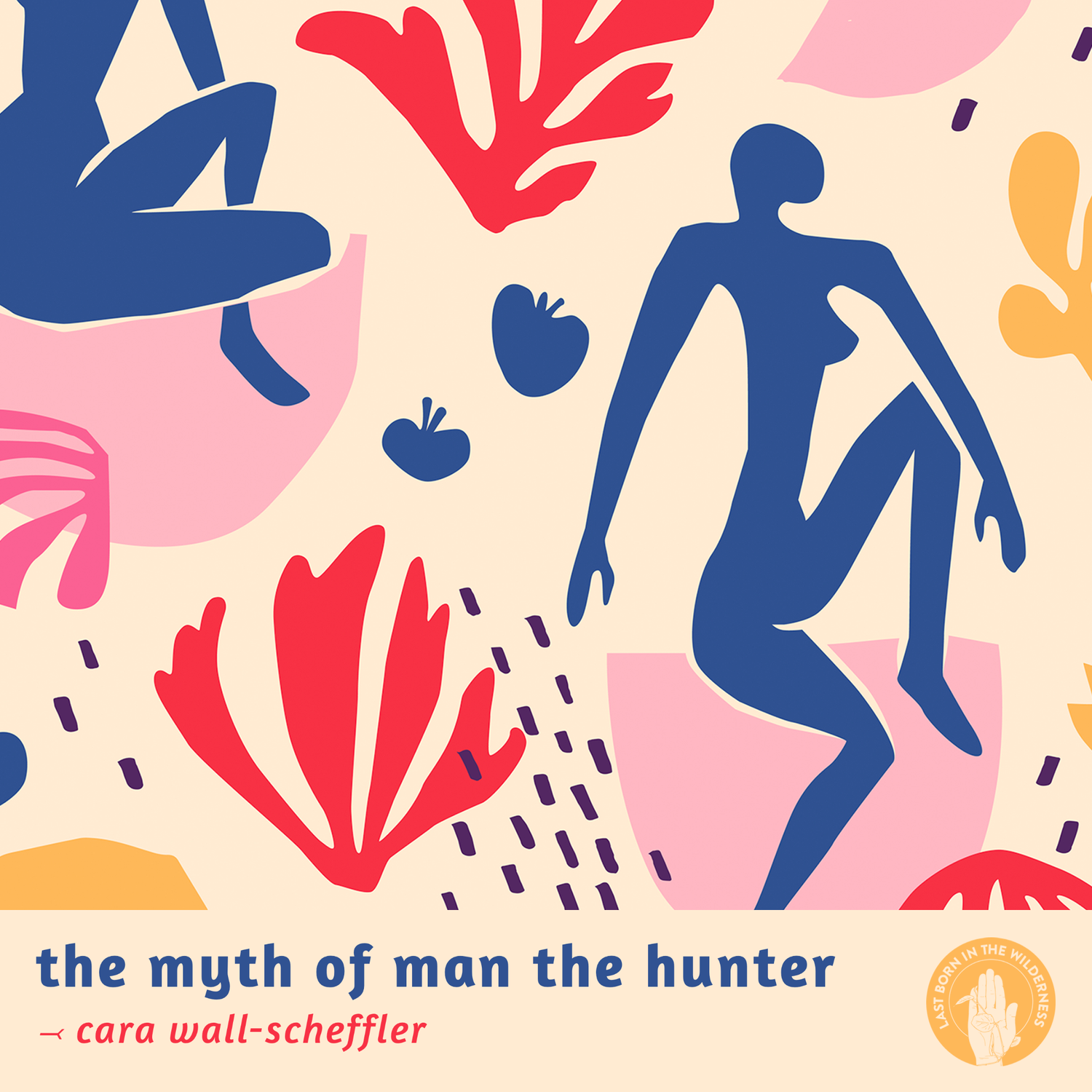Sidebar
Vegan Theory Club
 discord.com
discord.com
Weekly readings and chill vibes
cross-posted from: https://lemmy.world/post/19146720 > In light of Lemmy.World's new ToS regarding "unhealthy diets", here are some credible resources on that matter as it pertains to a plant-based diet in humans > > If you're here because of the "drama", congratulations, I am too apparently. If you're also here with the position that a vegan diet is unhealthy in humans, I'm begging you for a toilet break's worth of your time. The contents of this post are wholly divorced from ethics or environmental concerns, are not here to "own you with facts and logic", and are focused solely on human health through the quoting of scientific literature. For as many of these as I can, I have provided links to the full text on the NCBI's PubMed Commons in the interest of transparency. > > --- > * It is the position of the Academy of Nutrition and Dietetics that appropriately planned vegetarian, including vegan, diets are healthful, nutritionally adequate, and may provide health benefits for the prevention and treatment of certain diseases. These diets are appropriate for all stages of the life cycle, including pregnancy, lactation, infancy, childhood, adolescence, older adulthood, and for athletes [...] Low intake of saturated fat and high intakes of vegetables, fruits, whole grains, legumes, soy products, nuts, and seeds (all rich in fiber and phytochemicals) are characteristics of vegetarian and vegan diets that produce lower total and low-density lipoprotein cholesterol levels and better serum glucose control. These factors contribute to reduction of chronic disease. —[*Journal of the Academy of Nutrition and Dietetics* (2016)](https://pubmed.ncbi.nlm.nih.gov/27886704/) > --- > * Based on this systematic review of randomized clinical trials, there is an overall robust support for beneficial effects of a plant-based diet on metabolic measures in health and disease. —[*Translational Psychiatry* (2019)](https://www.ncbi.nlm.nih.gov/pmc/articles/PMC6742661/) > --- > * In most countries a vegan diet has less energy and saturated fat compared to omnivorous control diets, and is associated with favourable cardiometabolic risk profile including lower body weight, LDL cholesterol, fasting blood glucose, blood pressure and triglycerides. —[*PLoS One* meta-analysis (2018)](https://www.ncbi.nlm.nih.gov/pmc/articles/PMC6301673/) > --- > * This comprehensive meta-analysis reports a significant protective effect of a vegetarian diet versus the incidence and/or mortality from ischemic heart disease (-25%) and incidence from total cancer (-8%). Vegan diet conferred a significant reduced risk (-15%) of incidence from total cancer. —[*Critical Reviews in Food Science and Nutrition* (2017)](https://pubmed.ncbi.nlm.nih.gov/26853923/) > --- > * The present systematic review and meta-analysis showed a 15% and a 21% reduction in the relative risk of CVD and IHD, respectively, for vegetarians compared to nonvegetarians, but no clear association was observed for total stroke or subtypes of stroke. In addition, an 18% reduction in the relative risk of IHD was observed among vegans when compared to nonvegetarians, although this association was imprecise. —[*European Journal of Nutrition* (2023)](https://www.ncbi.nlm.nih.gov/pmc/articles/PMC9899747/) > --- > * Adequate intake of dietary fiber is associated with digestive health and reduced risk for heart disease, stroke, hypertension, certain gastrointestinal disorders, obesity, type 2 diabetes, and certain cancers. According to consumer research, the public is aware of the benefits of fiber and most people believe they consume enough fiber. However, national consumption surveys indicate that only about 5% of the population meets recommendations, and inadequate intakes have been called a public health concern [...] The IOM defines total fiber as the sum of dietary fiber and functional fiber. Dietary fiber includes nondigestible carbohydrates and lignins that are intrinsic and intact in plants; functional fiber includes isolated, nondigestible carbohydrates that have beneficial physiological effects in humans. Common sources of intrinsic fiber include grain products, vegetables, legumes, and fruit. —[*American Journal of Lifestyle Medicine* (2017)](https://www.ncbi.nlm.nih.gov/pmc/articles/PMC6124841/) > --- > * [R]ecommendations to increase fruit and vegetable consumption, while decreasing saturated fat and dairy intake, are supported [for asthma] by the current literature. Mediterranean and vegan diets emphasizing the consumption of fruits, vegetables, grains, and legumes, while reducing or eliminating animal products, might reduce the risk of asthma development and exacerbation. Fruit and vegetable intake has been associated with reduced asthma risk and better asthma control, while dairy consumption is associated with increased risk and might exacerbate asthmatic symptoms. —[*Nutrition Reviews* (2020)](https://www.ncbi.nlm.nih.gov/pmc/articles/PMC7550896/) > --- > * Over the past two decades, a substantial body of consistent evidence has emerged at the cellular and molecular level, elucidating the numerous benefits of a plant-based diet (PBD) for preventing and mitigating conditions such as atherosclerosis, chronic noncommunicable diseases, and metabolic syndrome. —[*Nutrients* comprehensive review (2023)](https://www.ncbi.nlm.nih.gov/pmc/articles/PMC10386413/) > --- > * Consumption of vegetarian diets, particularly vegan diets, is associated with lower levels of plasma lipids, which could offer individuals and healthcare professionals an effective option for reducing the risk of heart disease or other chronic conditions. —[*Nutrition Reviews* systematic review and meta-analysis (2017)](https://www.ncbi.nlm.nih.gov/pmc/articles/PMC5914369/) > --- > * After adjusting for basic demographic characteristics, medical specialty, and health behaviours (smoking, physical activity) in model 2, participants who followed plant-based diets had 73% lower odds of moderate-to-severe COVID-19 (OR 0.27, 95% CI 0.10 to 0.81) compared with participants who did not follow plant-based diets. Similarly, participants who followed either plant-based diets or pescatarian diets had 59% lower odds of moderate-to-severe COVID-19 (OR 0.41, 95% CI 0.17 to 0.99) compared with those who did not follow these diets. —[*British Medical Journal* (2021)](https://nutrition.bmj.com/content/4/1/257) > --- > * Current research suggests that switching to a plant-based diet may help increase the diversity of health-promoting bacteria in the gut. However, more research is needed to describe the connections between nutrition, the microbiome, and health outcomes because of their complexity and individual heterogeneity. —[*Nutrients* systematic review (2023)](https://pubmed.ncbi.nlm.nih.gov/36986240/) > --- > * [T]his systematic review shows that plant-based diets and their components might have the potential to improve cancer prognosis, especially for breast, colorectal and prostate cancer survivors. —[*Current Nutrition Reports* (2022)](https://www.ncbi.nlm.nih.gov/pmc/articles/PMC9750928/) > --- > * Moderate evidence suggests that adhering to vegan diets for at least 12 weeks may be effective in individuals with overweight or type 2 diabetes to induce a meaningful decrease in body weight and improve glycemia. —[*Obesity Reviews* systematic review and meta-analysis (2022)](https://www.ncbi.nlm.nih.gov/pmc/articles/PMC9540559/) > --- > * The data discussed in this systematic review allow us to conclude that plant-based diets are associated with lower BP and overall better health outcomes (namely, on the cardiovascular system) when compared with animal-based diets. —[*Current Hypertension Reports* (2023)](https://www.ncbi.nlm.nih.gov/pmc/articles/PMC10224875/) > --- > * There are multiple benefits of a vegan or vegetarian diet [six listed, too long to quote here] in the management of CKD [...] —[*Journal of Renal Nutrition* (2019)](https://www.jrnjournal.org/article/S1051-2276(19)30026-3/fulltext) > --- > * The present systematic review provides evidence that vegan and vegetarian diets are associated with lower CRP levels, a major marker of inflammation and a mediator of inflammatory processes. —[*Scientific Reports* (2020)](https://www.ncbi.nlm.nih.gov/pmc/articles/PMC7730154/) > --- > * Evidence strongly suggests that plant-based dietary patterns that are abundant in fruits, vegetables, nuts, seeds, legumes, and whole grains with less emphasis on animal foods and processed foods are a useful and a practical approach to preventing chronic diseases. Such dietary patterns, from plant-exclusive diets to plant-centered diets, are associated with improved long-term health outcomes and a lower risk of all-cause mortality. Given that neurodegenerative disorders share many pathophysiological mechanisms with CVD, including oxidative stress, inflammation, and vascular damage, it is reasonable to deduce that plant-based diets can ameliorate cognitive decline as well. —[*Advances in Nutrition* (2019)](https://www.ncbi.nlm.nih.gov/pmc/articles/PMC6855948/) > --- > * [T]he current study presents evidence that plant-based diets, among > which the vegan diet, have no effect on physical performance, including on strength/power performance. It is noteworthy that aerobic performance may be even benefitted by these diets. —[*British Journal of Nutrition* systematic review and meta-analysis (2024)](https://pubmed.ncbi.nlm.nih.gov/37869973/) > --- > * [H]igher adherence to plant-based dietary patterns, especially from healthy sources, may be universally beneficial for the primary prevention of T2D, CVD, cancer, and mortality. —[*Nutrition Journal* systematic review and meta-analysis (2023)](https://www.ncbi.nlm.nih.gov/pmc/articles/PMC10548756/) > --- > * This umbrella review offers valuable insights on the estimated reduction of risk factors for cardiometabolic diseases and cancer, and the CVDs-associated mortality, offered by the adoption of plant-based diets through pleiotropic mechanisms. Through the improvement of glycolipid profile, reduction of body weight/BMI, blood pressure, and systemic inflammation, A/AFPDs significantly reduce the risk of ischemic heart disease, gastrointestinal and prostate cancer, as well as related mortality. —[*PLoS One* (2024)](https://www.ncbi.nlm.nih.gov/pmc/articles/PMC11095673/) > --- > * In this community‐based cohort of US adults without cardiovascular disease at baseline, we found that higher adherence to an overall plant‐based diet or a provegetarian diet, diets that are higher in plant foods and lower in animal foods, was associated with a lower risk of incident cardiovascular disease, cardiovascular disease mortality, and all‐cause mortality. —[*Journal of the American Heart Association* (2019)](https://www.ncbi.nlm.nih.gov/pmc/articles/PMC6759882/) > --- > * In this meta-analysis of prospective observational studies, we found that greater adherence to a plant-based dietary patterns was inversely associated with the risk of type 2 diabetes. These findings were broadly consistent across subgroups defined by various population characteristics and robust in sensitivity analyses.—[*JAMA Internal Medicine* (2019)](https://www.ncbi.nlm.nih.gov/pmc/articles/PMC6646993/) > --- > * Our findings suggest that a shift in diet from a high consumption of animal-based foods, especially red and processed meat, to plant-based foods (e.g., nuts, legumes, and whole grains) is associated with a lower risk of all-cause mortality, CVD, and T2D. Thus, a change in dietary habits towards an increment of plant-based products appears to be important for cardiometabolic health. —[*BMC Medicine* systematic review and meta-analysis (2023)](https://www.ncbi.nlm.nih.gov/pmc/articles/PMC10652524/) > --- > * Not only is there a broad expansion of the research database supporting the myriad benefits of plant-based diets, but also health care practitioners are seeing awe-inspiring results with their patients across multiple unique subspecialties. Plant-based diets have been associated with lowering overall and ischemic heart disease mortality; supporting sustainable weight management; reducing medication needs; lowering the risk for most chronic diseases; decreasing the incidence and severity of high-risk conditions, including obesity, hypertension, hyperlipidemia, and hyperglycemia; and even possibly reversing advanced coronary artery disease and type 2 diabetes. —[*The Permanente Journal* (2016)](https://www.ncbi.nlm.nih.gov/pmc/articles/PMC4991921/)
I bought a sour dough starter from a special store, and have been on a bread making kick making a loaf every day for the last week. I've mostly been eating it with margarine or dipping in tomato sauce after toasting.... or just tearing off a piece and eating it like a starving peasant child. Any other suggestions for ways to eat my sour dough? (Oh and I am allergic to Soy and corn. Yeah I'm not welcome in most vegan restaurants cause of the soy thing.)
**Abstract** Despite the established health and ecological benefits of a plant-based diet, the decision to eschew meat and other animal-derived food products remains controversial. So polarising is this topic that anti-vegan communities — groups of individuals who stand vehemently against veganism — have sprung up across the internet. Much scholarship on veganism characterizes anti-vegans in passing, painting them as ill-informed, uneducated, or simply obstinate. However, little empirical work has investigated these communities and the individuals within them. Accordingly, we conducted a study using social media data from the popular platform, Reddit. Specifically, we collected all available submissions (∼3523) and comments (∼45,528) from r/AntiVegan subreddit users (N = 3819) over a five-year period. Using a battery of computerized text analytic tools, we examined the psychosocial characteristics of Reddit users who publicly identify as anti-vegan, how r/AntiVegan users discuss their beliefs, and how the individual user changes as a function of community membership. Results from our analyses suggest several individual differences that align r/AntiVegan users with the community, including dark entertainment, ex-veganism and science denial. Several topics were extensively discussed by r/AntiVegan members, including nuanced discourse on the ethicality and health implications of vegan diets, and the naturalness of animal death, which ran counter to our expectations and lay stereotypes of r/AntiVegan users. Finally, several longitudinal changes in language use were observed within the community, reflecting enhanced group commitment over time, including an increase in group-focused language and a decrease in cognitive processing. Implications for vegan-nonvegan relations are discussed.
**Abstract** Does the return of large carnivores affect voting behavior? We study this question through the lens of wolf attacks on livestock. Sustained environmental conservation has allowed the wolf (Canis lupus) to make an impressive and unforeseen comeback across Central Europe in recent years. While lauded by conservationists, local residents often see the wolf as a threat to economic livelihoods, particularly those of farmers. As populists appear to exploit such sentiments, the wolf’s reemergence is a plausible source for far-right voting behavior. To test this hypothesis, we collect fine-grained spatial data on wolf attacks and construct a municipality-level panel in Germany. Using difference-in-differences models, we find that wolf attacks are accompanied by a significant rise in far-right voting behavior, while the Green party, if anything, suffers electoral losses. We buttress this finding using local-level survey data, which confirms a link between wolf attacks and negative sentiment toward environmental protection. To explore potential mechanisms, we analyze Twitter posts, election manifestos, and Facebook ads to show that far-right politicians frame the wolf as a threat to economic livelihoods.
**Abstract** Tropes of ‘effeminized’ masculinity have long been bound up with a plant-based diet, dating back to the ‘effeminate rice eater’ stereotype used to justify 19th-century colonialism in Asia to the altright’s use of the term ‘soy boy’ on Twitter and other social media today to call out men they perceive to be weak, effeminate, and politically correct (Gambert and Linné). This article explores tropes of ‘plant food masculinity’ throughout history, focusing on how while they have embodied different social, cultural, and political identities, they all serve as a tool to construct an archetypal masculine ideal. The analysis draws on a wide range of material from the 19th and 20th centuries, as well as a qualitative media analysis of #SoyBoy tweets posted between October 2010 and August 2018. It argues that, given that we live in a world steeped in ‘coloniality’ (Grosfoguel), it is no wonder that sexist and racist colonial-era tropes are alive and well today, packaged in a 21st-century digital culture form. In the digital politics of the alt-right, dairy milk has become a symbol for racial purity, connecting pseudo-scientific claims about milk, lactose tolerance, race, and masculinity. The term ‘soy boy’ provides a discursive counterpoint, relying heavily on colonial-era stereotypes of so-called ‘effeminate’ plant eating, often linked to Asian and other non-white cultures. The article concludes by arguing that for those working to reframe centuries-old norms and tropes related to race, sex, and humankind’s relationship to other animals, part of that work may take place online using the tools of social media and reappropriation of derogatory language. However, ultimately the power of social media to change norms and minds depends on the power of the social movements driving those changes; success is likely to only come through a robust anti-racist, color-conscious, and gender-conscious vegan movement (Harper)
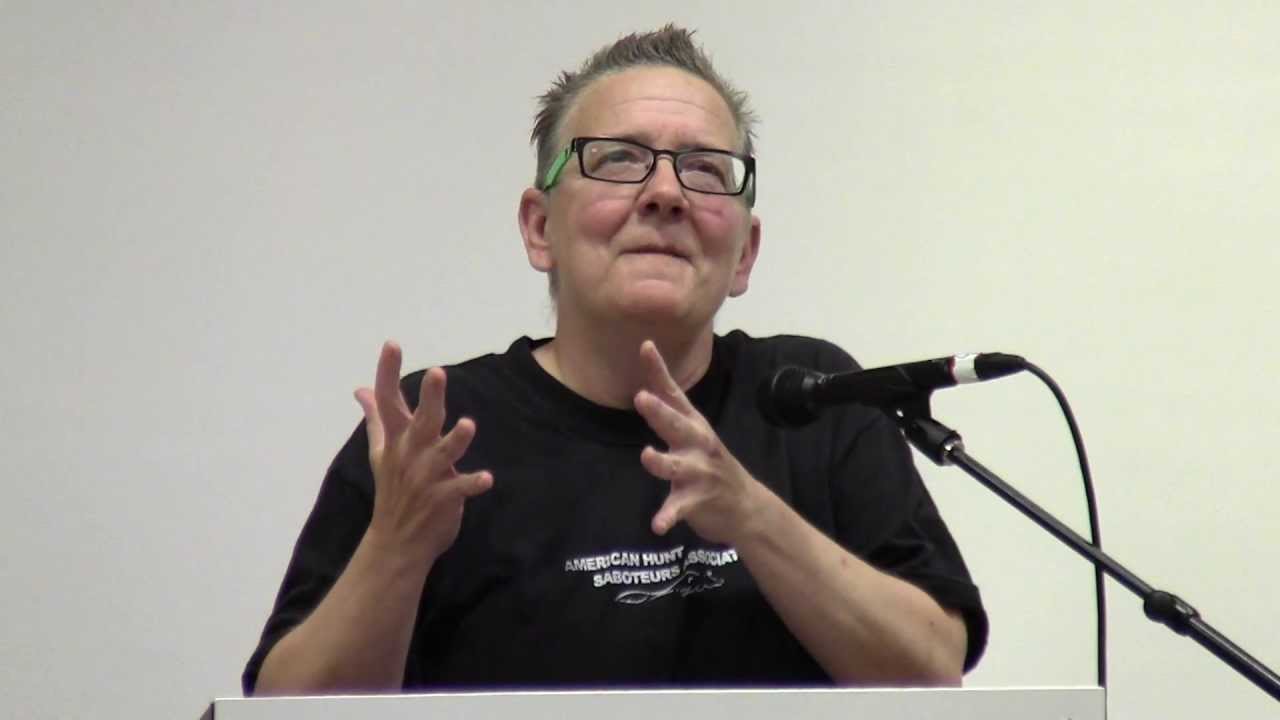 www.youtube.com
www.youtube.com
pattrice jones is an ecofeminist writer, scholar, activist and co-founder of VINE Sanctuary. About VINE, from their website: >VINE is an LGBTQ-led farmed animal sanctuary that works for social and environmental justice as well as for animal liberation. >We were the first sanctuary to rehabilitate roosters used in cockfighting. >Our solar-powered sanctuary is driven by an ecofeminist understanding of the intersections among the ways that humans hurt animals, each other, and the environment. More info: https://vinesanctuary.org/intersections
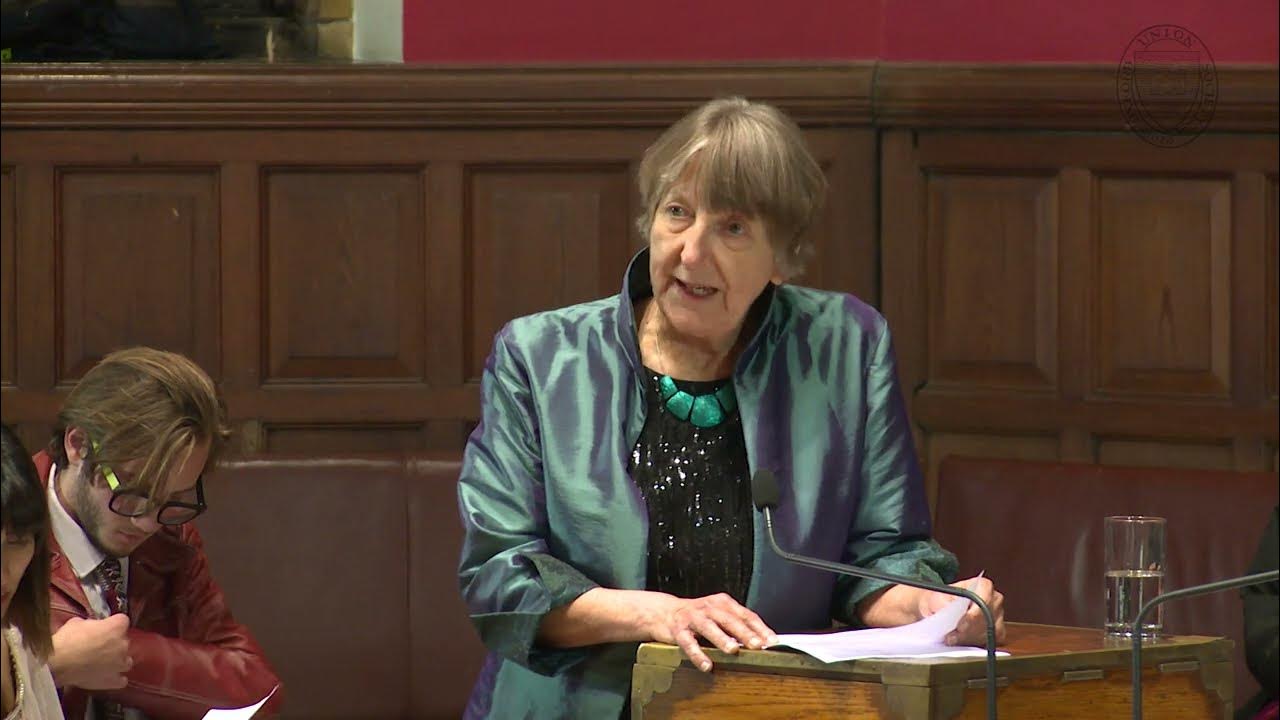 www.youtube.com
www.youtube.com
From the description: In the wake of damning new evidence, the contribution of meat consumption to carbon emissions is at the forefront of global conversations. In this debate, fears of environmental damage and ethical concerns for animal rights clash with millions within the meat industry facing unemployment, religious and cultural traditions being condemned, and those with medical requirements risking disapproval for putting their health first. In light of these competing concerns, we must confront one of the most urgent issues of our time: should society finally move beyond meat? -------------------------------------- Proposition Speakers 1. Heather Mills - Former model, businesswoman, media personality, and activist. She launched VBites, a vegan food company, and plans to create a ‘vegan Silicon Valley’ in the North of England. 2. Professor Jeff McMahan - White’s Professor of Moral Philosophy at the University of Oxford and author of The Meat Eaters. He has been a vegetarian for more than 50 years and continues to query the ethics of killing animals. 3. Carol Adams - Writer, vegan feminist, and animal rights advocate. She is known for having written The Sexual Politics of Meat: A Feminist-Vegetarian Critical Theory, and was inducted into the Animal Rights Hall of Fame in 2011. -------------------------------------- Opposition Speakers 1. Mikhaila Peterson - Canadian podcaster who runs the blog Don’t Eat That. She eats a meat-only ‘Lion Diet’ and claims this has helped her overcome autoimmune and mood disorders. 2. Peter Stevenson OBE - Chief Policy Advisor to Compasssion in World Farming and recipient of the RSPCA Lord Erskine Award. He was lead author of the UN Food and Agriculture Organisation review of animal welfare legislation.
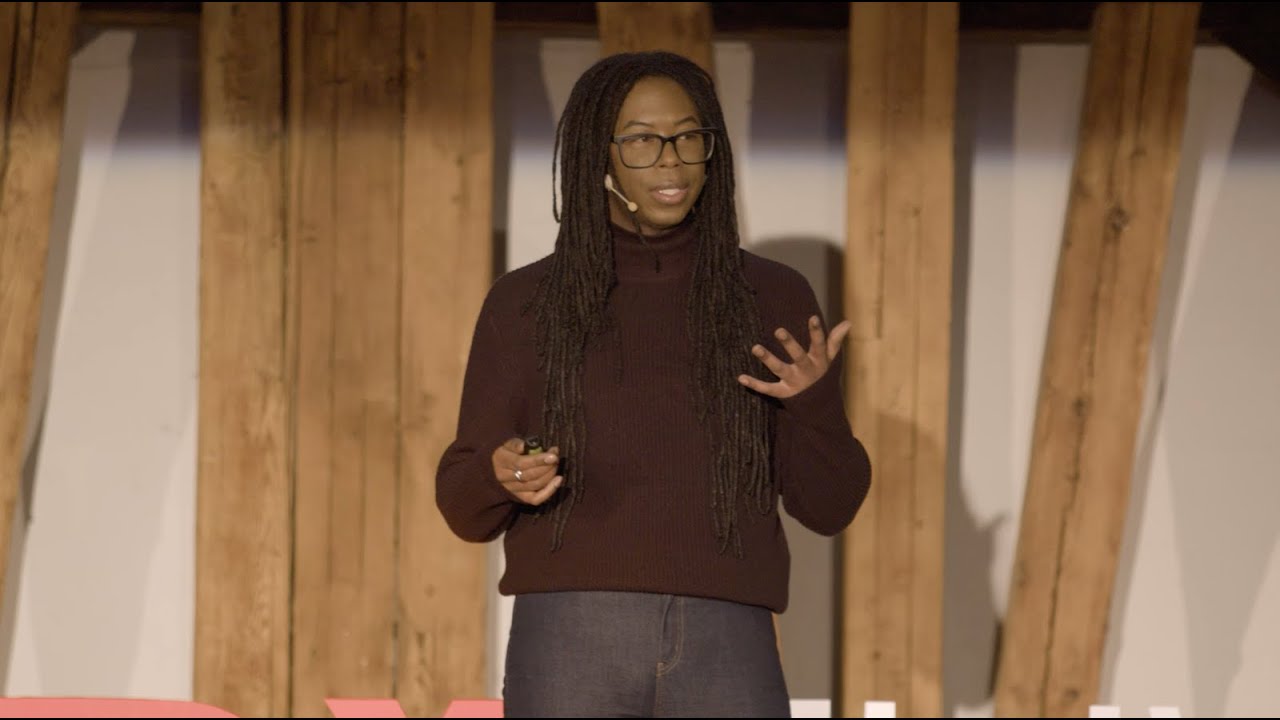 www.youtube.com
www.youtube.com
**Discussion of racism, slavery, genocide, and cannibalism.**
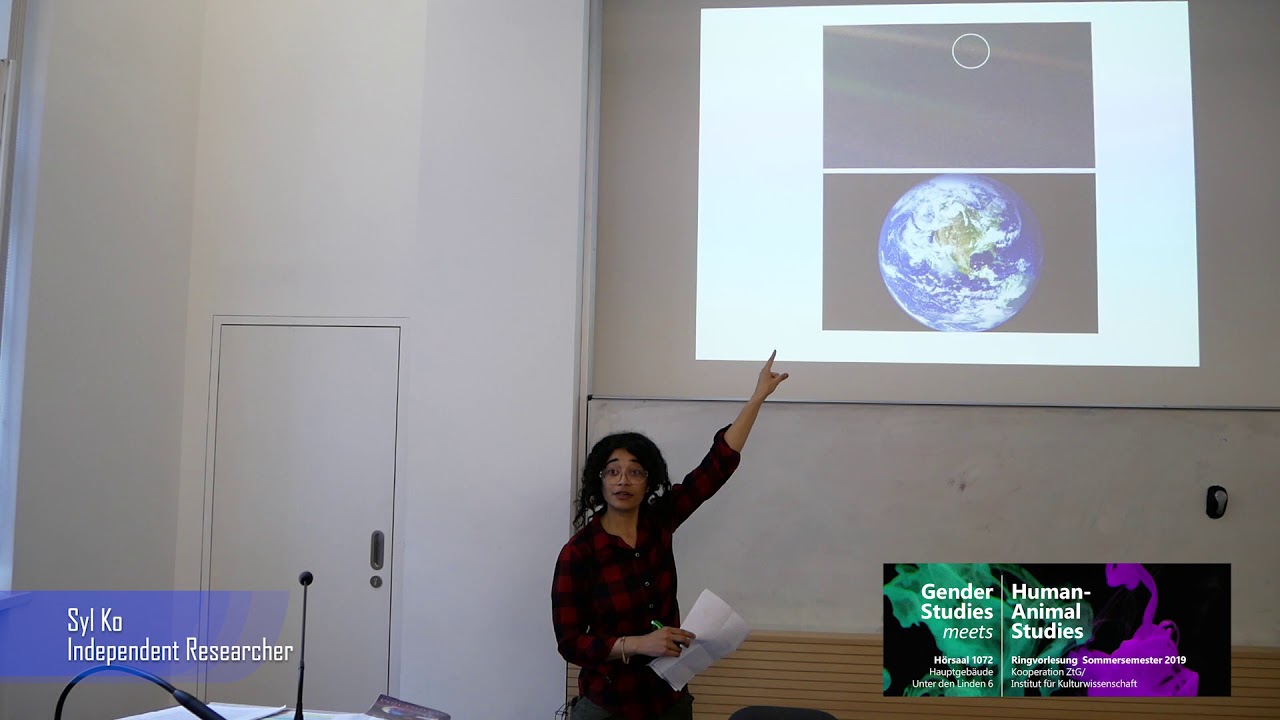 www.youtube.com
www.youtube.com
Edited to add the description of the talk written by the lecturer, Syl Ko: >An ongoing debate in contemporary animal ethics and critical animal studies is whether membership in the species Homo sapiens is morally relevant. Some argue that taking into account the species of a being in moral deliberation is no different than taking into account any other morally arbitrary property of a being, such as their race or sex. (Singer) Others, however, resist the parallels drawn between speciesism and moral injustices such as racism and sexism. They argue that one’s membership in our species is not only a morally relevant fact to consider, but to insist otherwise is to threaten the nature of morality altogether. (Diamond, MacLean, Williams, Anderson) >In this presentation, I discuss another human-animal division absent from the debate, which concerns members of our species exclusively. This division establishes who is and who is not a “real human” in order to determine a social order in which members of the group “Human” are separate from and superior to the latter group, “Animal,” thus justifiably putting into place practices and institutions that ensure the former group’s dominance over the allegedly inferior others. (Deckha, Fanon, Ko&Ko, Wynter) What is under dispute in this division is not whether the affected individuals or groups are members of our species. Rather, the affected individuals or groups are recipients of inequitable treatment by virtue of their perceived failure to qualify as members of the social class, “Human.” >I argue that the latter division is, in fact, conceptually prior to the former. Thus, questions concerning the moral status of nonhuman animals ought to move away from discussions concerning species membership and to those concerning topics such as race, gender and class.
 www.youtube.com
www.youtube.com
cross-posted from: https://lemmy.world/post/7596924 > High quality video essay. > > Spoiler: > ::: spoiler spoiler > it's grifters, they're grifters > ::: >
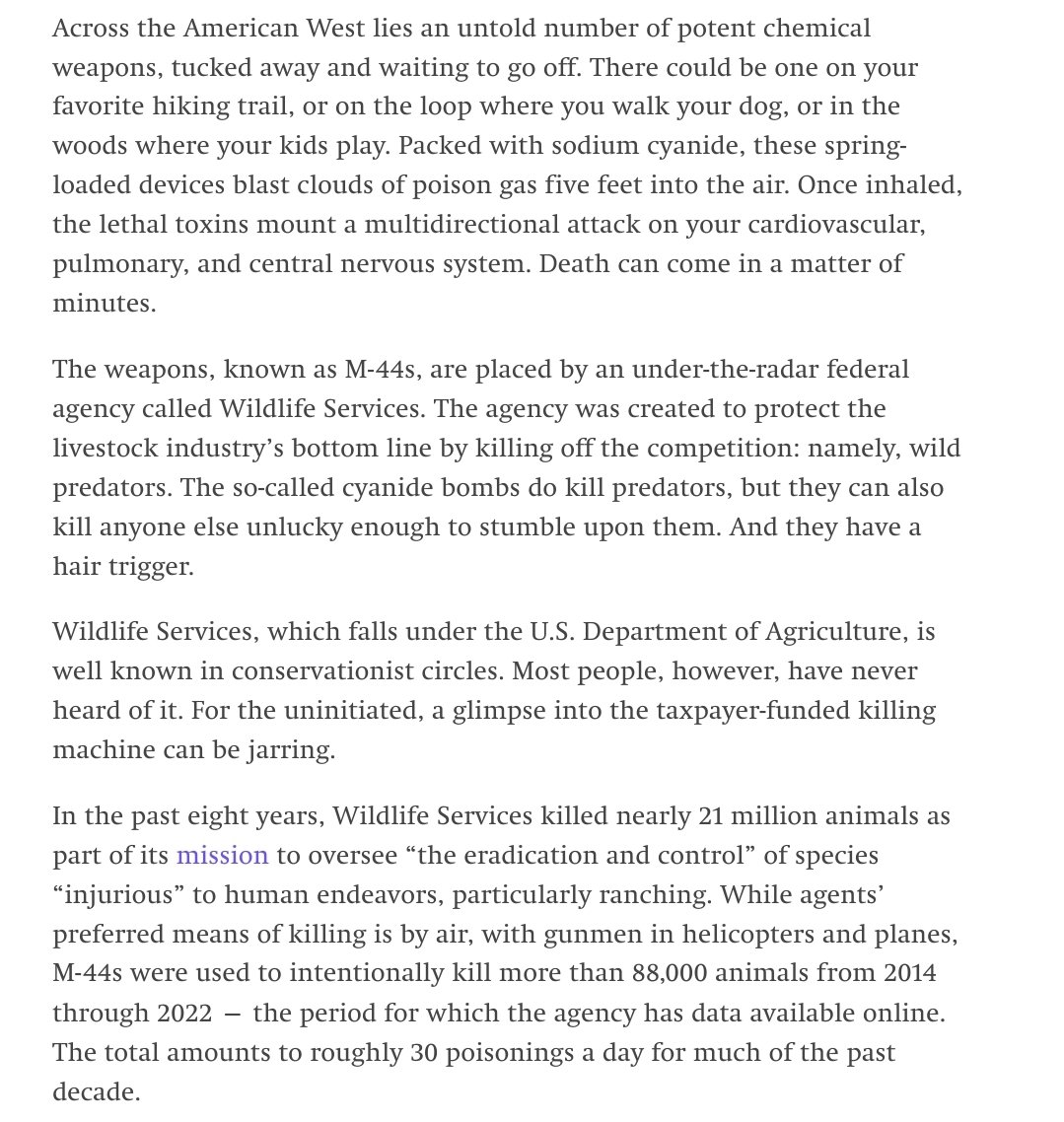
 www.conspirituality.net
www.conspirituality.net
Dealing with wellness paleo-keto pseudoscience and related grifting. >Neuroscientist Andrew Huberman has become one of the most popular science podcasters in the world. His regular two- to four-hour episodes feature a dizzying assault of information on topics like physical and mental fitness, psychedelics, hair loss, brain optimization, and a host of other topics, sometimes with expert guests, while at other times he goes solo. And many of these episodes are super informative and inspirational. >And yet, at times it seems like Huberman is sacrificing quality for quantity. This week, we look at three instances in which Andrew Huberman appears to be speaking outside of his lane, or perhaps overhyping supplements for his own benefit, and we want to know what else is being sacrificed along the way. McGill Office for Science and Society science communicator, Jonathan Jarry, joins the discussion.
>Furthermore, as they are susceptible to both human and avian influenza viruses (3, 8, 10, 12), mink could also serve as mixing vessels for reassortment, a known pathway to pandemic emergence. A hypothetical route to co-infection is easy to envisage: Mink infected with avian influenza virus—which they acquired from being fed dead poultry or via exposure to wild birds—could become directly co-infected with human seasonal influenza transmitted to them from infected handlers. The last three influenza pandemics arose after the mixing of influenza genes among avian and human-origin strains, which are often thought to occur in a “mixing vessel” species. Swine are often cited as the vessel because pigs are susceptible to many avian and human strains. Pigs, however, are somewhat refractory to H5N1 infections, including the currently panzootic clade 2.3.4.4b viruses (13). Mink clearly are not. Mink farms could provide ample opportunity for the reassortment between H5 subtype avian influenza viruses and human-adapted strains. >Fur farming is banned across many European countries and North American states or territories. Several other regions have set dates for phasing it out. These bans have historically been a response to ethical concerns about the treatment of these animals. We strongly urge governments to also consider the mounting evidence suggesting that fur farming, particularly mink, be eliminated in the interest of pandemic preparedness. Fur farming should be in the same category of high-risk practices as the bushmeat trade and live animal markets. These activities all increase the likelihood of future pandemics. At the very least, biosecurity practices and active surveillance at fur farms must be reviewed, greatly enhanced, and closely enforced.
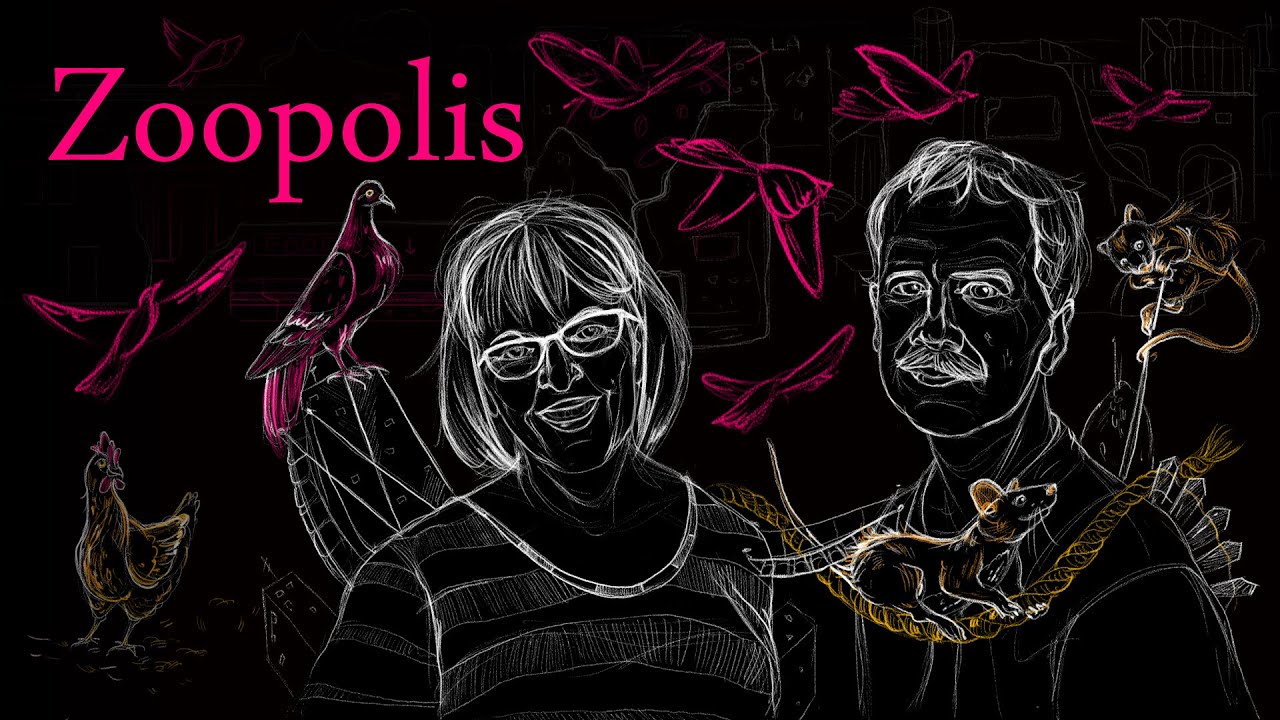 www.youtube.com
www.youtube.com
>*Sue Donaldson and Will Kymlicka wrote a remarkable book of political philosophy called "#Zoopolis: A Political Theory of Animal Rights." In their work, they argue for a future where other animals are not only protected, but enabled to shape society as well. A future where #nonhuman animals are recognized as political actors instead of moral patients for which humans decide. We'll explore some of these exciting ideas, along with some of the critiques the book has raised.*

[paper pdf](https://www.hetnatuurhistorisch.nl/fileadmin/user_upload/documents-nmr/Publicaties/Deinsea/Deinsea_21/Deinsea_21_17_25_2023_Hiemstra_et_al.pdf)

cross-posted from: https://lemmy.world/post/194038 > Tone cops always come out of the woodwork to disparage vegans who ask carnists not to hurt animals, no matter how nicely they ask. But they'd never speak up on behalf of animals, bc they benefit from being the "good vegan" and are beloved by human supremacists for enforcing the status quo. Fighting for animal liberation is *incredibly* stigmatized, and pick-me's try to escape that stigma by throwing activists under the bus. This is common in *all* spheres of social justice. > > > Respectability politics have been criticized for being "used to rationalize racism, sexism, bigotry, hate, and violence." For example, Bill Cosby "never gave voice to issues of racism, sexism, the failed public school system, health and economic disparities, mass incarceration or police brutality. Instead, he spent over a decade disparaging Black folk to the delight of white conservatives." which made him controversial in the Black community. > > https://en.m.wikipedia.org/wiki/Respectability_politics > > Any challenge to the status quo will be deemed "mean" by those who benefit from it. Misogynists paint those who challenge patriarchy as mean man haters, femin*zis, uppity, unreasonable. [Same thing for activists who fight against racism.](https://youtu.be/UvC4xq32AX8) Human supremacists will always paint vegans as mean bullies for asking them to stop supporting the rape and murder of nonhumans. That doesn't make their framing fair or true. They're just protecting their status quo, which causes the torture and death of over a *trillion* sentient beings every year. Carnists love when pick-me's favor their feelings (about being told to give up their victims' literal corpses) over the feelings of their victims (terror, grief, pain, horror) and the lives of their victims. > > But change doesn't happen when you flatter power and enforce the status quo. Animals will not be liberated by throwing the people who speak out for them under the bus while protecting the people that harm them. Leftists know this already, but they like to forget when it comes to animal liberation
Has anyone ever told you that it's ethical to shoot someone because otherwise, that person might suffer? Hunters are always telling us that they're actually helping deer by murdering them, because there's just so many deer, some of them might starve. It's not very convincing logic. It certainly wouldn't fly if we proposed solving human "overpopulation" through murder. But let's set aside the blatant speciesism for a moment and see whether it's even true that deer are overpopulated and if murder is the best solution if they are. Hunters materially profit off the bodies of deer. Whether or not it's in the deers' best interest to get murdered, it's definitely in the hunter's best interest to be able to exploit and murder deer [year after year](https://www.stoptheshoot.org/why-culls-don-t-work). To that end, deer populations are artificially inflated by deer breeding programs which are paid for by hunting licenses. They breed the deer and "manage" the land ([like clearcutting forests](https://www.pfwebsites.org/chapter/ottertailpforg/files/Forests.pdf), planting deer-preferred plants and requiring tenant farmers to leave a certain amount of their crops unharvested in order to feed the deer, creating the edge habitat that is preferred by deer and also outright feeding the deer) so that the populations increase so that there's always enough stock to hunt. The reality is that there are thousands of “state game farms” across the country artificially breeding animals like deer and pheasants, quail and partridges in the hundreds of thousands and releasing them into hunting ranges. In Wisconsin alone, the state currently registers 372 “deer farms,” according to the [Wisconsin Department of Agriculture, Trade and Consumer Protection.](https://datcp.wi.gov/Pages/Programs_Services/FarmRaisedDeer.aspx) And when a disease outbreak occurs on these farms, entire herds are “depopulated.” Some even claim that a substantial chunk of their funding comes directly from hunting licenses: https://www.wildlife.state.nh.us/funding/charts.html http://files.dnr.state.mn.us/aboutdnr/budget/bottom_line/budget.pdf And the amount of federal funding they get is based off of license sales, too: >The Secretary determines how much to give to each state based on a formula that takes into account both the area of the state and its number of licensed hunters. https://en.wikipedia.org/wiki/Pittman%E2%80%93Robertson_Federal_Aid_in_Wildlife_Restoration_Act >Matt Hogan, executive vice president of the Association of Fish and Wildlife Agencies, pointed out, “Public support for hunting and fishing is crucial for conservation efforts. State fish and wildlife agencies have been and continue to be funded in large part by the contributions of sportsmen and women through license sales and excise tax payments on hunting and fishing equipment. To put it simply, without hunters and anglers, state fish and wildlife agencies would not be able to do their job conserving and managing wildlife for all Americans to enjoy.” https://web.archive.org/web/20070615231714/http://www.responsivemanagement.com/download/news/newsrls_09_06.pdf The whole point of our agencies is to conserve enough deer *to hunt*. They don't hide that they maintain a high population *on purpose* so that there can always be hunting seasons in perpetuity. They're conserving hunting stock. They're "managing" non-human populations so we don't run out of stock. We're certainly not doing this for the benefit of the deer as sentient individuals who deserve not to suffer; we're doing this because they are completely objectified as resources for our consumption. >An optimum population of deer balances positive demands (e.g., recreational hunting and viewing) with negative demands (e.g., agricultural and ornamental plant damage, vehicle collisions, ecosystem impacts). Despite damage caused by deer, Virginia’s white-tailed deer represent a beneficial economic and social resource. https://dwr.virginia.gov/wildlife/deer/deer-management-program In fact, "conservation" in North American is centered *entirely* on exploitation of resources, not consideration for sentient individuals nor even preservation of species, which is why game animals are bred and bolstered yet predators and other non-useful animals are murdered and driven out. https://www.fws.gov/hunting/north-american-model-of-wildlife-conservation.html >"Professor Thomas Serfass, Frostburg State University, Maryland, chairman of their department of natural resources and biology, told Thuermer: “I would describe the North American Model as incomplete.” >Hunter control depends on it being incomplete. One of the huge elements missing is contributions of federal land management agencies. “Setting land aside in the public domain in perpetuity is probably the most substantive thing we do for wildlife conservation," says the professor. >Thuermer quotes study co-author Molde as saying, “What about this public lands argument. Holy Toledo, that’s a huge subsidy to hunters.” >We, the 94 percent non-hunter public, pay for the lands and services, but are told that hunters have all the rights to destroy our wildlife. We pay — they have the only say. Seems fair to them. >The study's authors begin: “With increased awareness and interest of the general (non-consumptive) public in controversial wildlife management issues such as fur trapping, predator control, trophy hunting, coyote killing contests and wolf reintroduction, a debate is before us as to whether the general public is or should be afforded a proper voice in wildlife management decisions. >“Sportsmen favor the current system, which places a heavy emphasis on their interests through favorable composition of wildlife commissions and a continued emphasis on ungulate management. Non-human predators (wolves, mountain lions, coyotes, ravens and others) are disfavored by wildlife managers at all levels as competition for sportsmen and are treated as second-class citizens of the animal kingdom. Sportsmen suggest this bias is justified because ‘sportsmen pay for wildlife,’ a refrain heard repeatedly when these matters are discussed. Agency personnel and policy foster this belief as well.” https://madison.com/ct/columnist/patricia-randolph-s-madravenspeak-non-hunters-should-claim-rights-to/article_1eeaf0bf-8c11-5c5f-835b-30e73edc8890.html
1) [Decoding “Never Again” by Sherry F. Colb](https://mainstreetvegan.net/decoding-never-again-by-sherry-f-colb), whose family were holocaust survivors. > What people mean, then, when they say that a comparison between animal agriculture and the Holocaust must be trivializing to the latter, since they cannot be referencing the magnitude or scale of the injury, must be instead the relative insignificance of the victims of animal agriculture. People who say that the analogy necessarily trivializes the Holocaust plainly regard the nonhuman victims of the injury as trivial individuals. The complaint is “how can you compare grave injuries to beings who matter—human beings—to grave injuries to beings—non-humans—whose lives do not matter and are trivial?” I see this second type of complaint in the notion that comparing animal slaughter with the Holocaust necessarily trivializes the Holocaust, and insofar as that is the complaint, I reject it. It betrays the very lessons that one needs to learn from the Holocaust’s construction of Jews. 2) ["Can the Treatment of Animals Be Compared to the Holocaust?"](https://libgen.li/edition.php?id=33439017) by David Sztybel, the son of Holocaust survivors. Dr. David Sztybel: http://davidsztybel.info > The comparison in general, to the extent that it can be illuminated, cannot successfully be impugned and by alleging that it glosses over particular differences, is insulting, trivializing, or put forward by those who are "Nazi-like." Certainly, it would be viciously circular to assume that animal liberation is mistaken from the start, which makes a comparison offensive, and which in turn is supposed to prove that animal liberation is wrong. I conclude that if all other objections against animal liberation fail, objecting to the Holocaust comparison by itself will not indicate the case for anti-animal liberation. I submit the possibility that some people are deeply offended by the comparison because they are profoundly prejudiced against animals and in favor of human beings, and intolerant of those who hold opinions that are reflective of animal liberationist tendencies. If there were no such thing as discriminatory oppression, there never would have been a Holocaust, but neither could there be what animal liberationists refer to as *speciesism*. Far from the comparison being intrinsically objectionable, it is potentially useful and Illuminating, and may help to underline the gravity of our oppression of nonhuman animals. 3) [“Animals, My Brethren"]( http://neveragain.org.il/articles/animals-my-brethren-edgar-kupfer-koberwitz), by Edgar Kupfer-Koberwitz, who wrote this while in the concentration camp at Daschau > The following pages were written in the Concentration Camp Dachau, in the midst of all kinds of cruelties. They were furtively scrawled in a hospital barrack where I stayed during my illness, in a time when Death grasped day by day after us, when we lost twelve thousand within four and a half months. > [...] I refuse to eat animals because I cannot nourish myself by the sufferings and by the death of other creatures. I refuse to do so, because I suffered so painfully myself that I can feel the pains of others by recalling my own sufferings. 4) [Georges Metanomski, a Holocaust survivor who fought in the Warsaw Ghetto Uprising](http://neveragain.org.il/testimonies/jewish-survivors-and-family-members-of-the-victims-speaking-up) > When I see cages crammed with chickens from battery farms thrown on trucks lile bundles of trash, I see, with the eyes of my soul, the Umschlagplatz. When I go to a restaurant and see people devouring meat, I feel sick. I see a Holocaust on their plate. 5) Isaacs Bashevis Singer, [“Enemies, A Love Story”](https://b-ok.cc/book/6009323/f359a9) and [“The Letter Writer”](https://b-ok.cc/book/1933346/759e81) > What do they know-all these scholars, all these philosophers, all the leaders of the world - about such as you? They have convinced themselves that man, the worst transgressor of all the species, is the crown of creation. All other creatures were created merely to provide him with food, pelts, to be tormented, exterminated. In relation to them, all people are Nazis; for the animals it is an eternal Treblinka. 6) Alexandra M., full name withheld, a Holocaust survivor whose family was murdered. ["The Lesson Has Not Been Learned”](http://neveragain.org.il/articles/the-lesson-has-not-been-learned-alexandra-m) > Almost seventy years since that War – and the lesson has simply not been learned. There is not a single memorial in which there’s no mention of those innocent led “like lambs to the slaughter”. Woe is to him, though, who has the audacity to even hint that there’s anything wrong with the lambs themselves being led to slaughter. Woe is to him who compares those past persecutors and today’s; past freedom fighters with today’s. As if those led to slaughter back then were pronounced inferior “by mistake”, whereas those pronounced so today are “truly” inferior. As if one extermination isn’t the same as another, as if rescuers aren’t rescuers wherever they are. As if the calf doesn’t treasure his or her life, as if the hen doesn’t prize her freedom, as if the sow does not enjoy the company of her friends. 7) ["Eternal Treblinka: Our Treatment of Animals and the Holocaust” by Charles Patterson](https://b-ok.cc/s/eternal%20treblinka) In the forward to the book, animal rights activist and daughter of Holocaust survivors, Lucy Rosen Kaplan states: > I came to understand that the oppression of nonhumans on this Earth eclipses even the ordeal survived by my parents. 8) [Eternal Treblinka: Reactions - more survivor and family member accounts](https://web.archive.org/web/20180822000229) > Eternal Treblinka should be on every list of essential reading for an informed citizenry...for the compelling comprehensiveness of the life-and-death story it tells. --National Jewish Post & Opinion > Whether the comparison between the extermination of the Jews and our daily slaughter of millions of 'food' animals evokes agreement or outrage, you will want to read this meticulously researched and compelling treatment of a painful and controversial subject. --Jewish Journal of Greater Los Angeles > Exceptionally well done. I'll recommend it to many others. A cold shower for relativists cozy in their SUV's, I hope many read it and I hope many Jews, like myself, make room for the lessons within. I don't see it as a diminution of the Holocaust. Quite the opposite. --Paul Allen 9) [Mark Berkowitz (a Mengele Twin)](http://neveragain.org.il/testimonies/jewish-survivors-and-family-members-of-the-victims-speaking-up) > I dedicated my mother’s grave to the geese. My mother does not have a grave, but if she did I would dedicate it to the geese. I was a goose too. 10) [Speech from Alex Hershaft](https://youtu.be/18mZrDujOm0), and you can find several more on YouTube. [Page on Jewish Veg website](https://www.jewishveg.org/holocaust-présentation) 11) [Eating Animals by Jonathan Safran Foer](https://b-ok.cc/book/1231044/33ab07) 12) [Holocaust Survivors Speak: Lessons From The Death Camps](https://bitesizevegan.org/ethics/holocaust-survivors-speak-lessons-from-the-death-camps)
 www.truthordrought.com
www.truthordrought.com
The idea that almond milk is the most wasteful milk ever is literally dairy industry propaganda (and here's the receipts)
Your brain on carnist realism. > emancipatory politics must always destroy the appearance of a ‘natural order’, must reveal what is presented as necessary and inevitable to be a mere contingency, just as it must make what was previously deemed to be impossible seem attainable. Mark Fisher, *Capitalist Realism: Is There No Alternative?*
 newrepublic.com
newrepublic.com
sci-hub.st/10.1215/10642684-4157487 From a linked paper, published in a queer studies journal. the animal victims of bestiality in early america were usually killed in front of their abuser. The crime was more about it being taboo or worries of creating demon children and obviously not out of concern for the animal. As for modern laws... > Rather than describe animal husbandry as absent sexual gratification, this reading of South Dakota’s law actually has the opposite effect: the presence of “sexual gratification” is not an adequate means to distinguish animal husbandry from bestiality > Sexual abuse is not defined by the act alone, since the same act can be criminal in one context and merely agricultural in the other. Nor is it defined by the absence of consent, since meat animals are as incapable of legal consent as family pets. Nor is it defined by the presence of perverse intent on the part of perpetrator, since some laws recognize that such intents may be congruent with an act of husbandry. Nor, indeed, is it defined by the animal’s subjective experience of pain and violation, since injury, pain, and even death are commonplace in animal breeding, and swine and cattle are as cognitively capable of pain and trauma as cats and dogs. Instead, sexual abuse is defined exclusively by the nonrelationship of the sexual act to the reproduction of biocapital. > As bestiality laws make clear, meat animals are life opened to sex, but life that cannot be raped—flesh that can be touched but that cannot be violated. lots of over good stuff in there, like how kids 10 and up can legally work at forms and be directed to perform "animal husbandry" tasks that would be illegal if they were directed to do so by a parent at home to a pet. https://www.researchgate.net/publication/320208999_How_Meat_Changed_Sex_The_Law_of_Interspecies_Intimacy_after_Industrial_Reproduction
 www.counterpunch.org
www.counterpunch.org
Plant based foods systems and degrowth are necessary to combat climate change. Failure to recognize this is soft climate denialism based in profit or self interest. Related: https://citationsneeded.libsyn.com/episode-121-climate-chaos-part-i-how-the-gap-between-liberal-rhetoric-policy-promotes-denialism https://citationsneeded.libsyn.com/episode-122-climate-chaos-part-ii-the-militarization-of-liberals-climate-change-response
 www.ncbi.nlm.nih.gov
www.ncbi.nlm.nih.gov
> Abstract: Despite the strength of arguments for veganism in the animal rights literature, alongside environmental and other anthropocentric concerns posed by industrialised animal agriculture, veganism remains only a minority standpoint. In this paper, I explore the moral motivational problem of veganism from the perspectives of moral psychology and political false consciousness. I argue that a novel interpretation of the post-Marxist notion of political false consciousness may help to make sense of the widespread refusal to shift towards veganism. Specifically, the notion of false consciousness fills some explanatory gaps left by the moral psychological notion of akrasia, often understood to refer to a weakness of will. Central to my approach is the idea that animal exploitation is largely systemic and the assumption that moral motivation is inseparable from moral thinking. In this light, the primary obstacle to the adoption of veganism arises not so much from a failure to put genuine beliefs into action, but rather in a shared, distorted way of thinking about animals. Thus, common unreflective objections to veganism may be said to be manifestations of false consciousness.
Nonhumans communicate when they don’t want to be touched or held. But they have so much less power than us, so many of us choose to ignore their desires and do what we want anyway. It’s not okay.
This can be read in a sitting, so please read it! "We do not exploit animals because we deem them to be inferior, rather, we deem animals to be inferior because we exploit them." -Marco Maurizi And some more reading: - https://weeklyworker.co.uk/worker/994/animal-liberation-and-marxism - http://www.assoziation-daemmerung.de/social-theory-ideology-critique-and-class-struggle - https://asinusnovus.net/2013/01/17/critical-theory-and-animal-liberation-a-review I also found an interview about the 18 Theses here (use your browser or something to translate): http://yenie.net/marksizm-ve-hayvan-ozgurlesmesi-birlik-hayvan-ozgurlesmesi-sorunu-marksizm-geleneginde-mevcut And this cool article discussing and building on the Theses: http://yenie.net/hayvan-ozgurlesmesi-ve-marksizm One thing I like about this article is how affirming it is about the contributions of other leftist tendencies towards developing animal liberation theory, in a way acting as stepping stones towards its realization in a Marxist theoretical framework. It also has a cool discussion about the place of ethics in scientific Marxism. I won't quote all of it, but here's a tiny bit: > The contradictions we face or witness in life push us to take an ethical position, and then - if it happens - this attitude embraces a scientific method. Che gives the best answer to those who think that ethics has no place in Marxism: "The revolutionary is the one who feels the slap of another person on his face."
> Although it is undeniably true that “nature” does “kill” and “torture,” it is also cooperative, compassionate, and just. An increasing amount of research is beginning to show just how many the social interactions among various species are affiliative rather than divisive or violent. Nature may be brutal, but it is also far more complex than a dog-eat-dog world. Marc Bekoff and Jessica Pierce write that the “consumption paradigm . . . has monopolized discussions of the evolution of social behavior. The predominance of this paradigm in ethology and evolutionary biology is both misleading and wrong, and momentum is building toward a paradigm shift in which ‘nature red in tooth and claw’ sits in balance with wild justice.” -- Sunaura Taylor (from her book *Beasts of Burden*)
 web.archive.org
web.archive.org
> Introduction > This is a text which, we hope, faces in two directions. On the one hand we hope that it will be read by people interested in animal liberation who want to consider why animal exploitation exists, as well as how. On the other hand, by those who define themselves as anarchists or communists who either dismiss animal liberation altogether or personally sympathise with it but don’t see how it relates to their broader political stance. > While there have always been groups and individuals with feet in both camps, for the most part discussion between those involved in animal liberation and communists has been at a derisory level. ‘Debate,’ in so far as it exists, consists mainly of abuse and rarely moves beyond the level of comments like ‘wasn’t Hitler a vegetarian’ (actually not – he injected ‘bulls blood’ into his testicles, and does this mean you can’t be a communist and a house painter or an Austrian?). > We hope to prompt the beginnings of a real debate about the relationship between the ‘animal question’ and the ‘social question’. This text does not claim to have all the answers or to be the ‘communist manifesto’ for animals, but we think that it does pose some of the key questions. Over to you… Click the link to read the full text. It's worth it, I promise. And if you want to read the pdf, the download for that still works despite it being an archived site. Happy reading
 animalliberationcurrents.com
animalliberationcurrents.com
> It is not the role of Marxists to soften the perception of the conflict between the capitalist mode of production and the welfare of humans, other animals and the natural environment. On the contrary, it is by highlighting and elucidating these conflicts and their everyday perception that working people turn to themselves. If animals are not part of our class because they are not humans, they are not part of the ruling class either, and they have much more in common with us than with them, whether that is in terms of exploitation, freedom deprivation or commoditization. The communist morality, as a development of the proletarian morality envisioned by Engels, can only be built on the rejection of all forms of oppression. Thus, considering the present relations of production, we must reject animal exploitation, incorporating the struggle for their liberation into the struggle for human emancipation, since there is no justification, other than bourgeois moralism, for the industrial application of suffering on animals.
 lux-magazine.com
lux-magazine.com
A socialist-feminist article. If I start quoting my favorite sections, I’ll end up quoting the whole thing CW descriptions of rape
